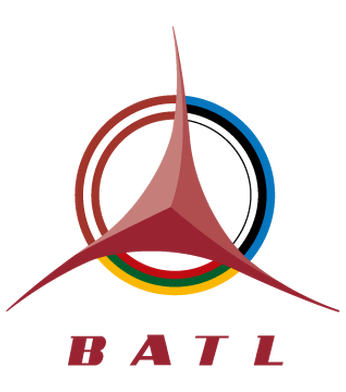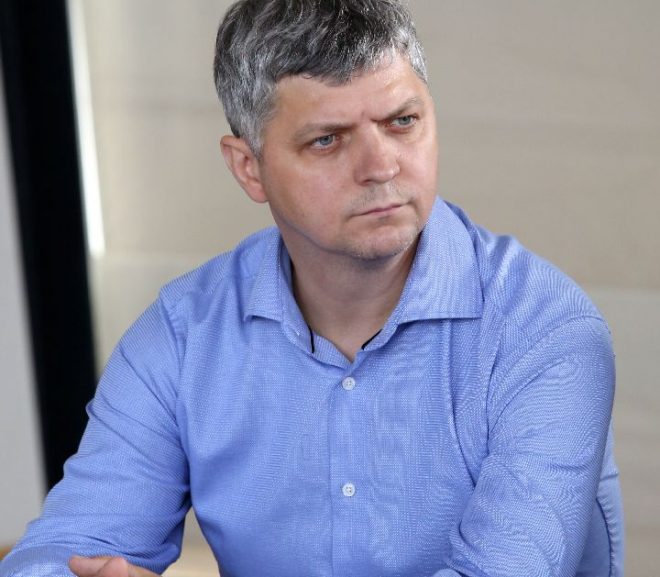«To ensure potassium salt from Belarus returns to Latvia, we have to do our homework – make railway infrastructure more efficient, reduce tariffs and give Belarusian partners an attractive offer. And we need to act quickly. The new legislative initiative for the opening of the border railway section for all cargo carriers is a strong signal to help strengthen cooperation between Latvia and Belarus,» stresses Baltic Association – Transport and Logistics (BATL) board member Ivars Landmanis.
Belarus has surveyed new potassium salt deposits. This means production volumes will increase and along with production volumes so will export volumes. «Belarus is, without a doubt, a strategic partner for Latvia. Representatives of Belaruskalij had visited Latvia not long ago to consider the option of diversifying the flow of potassium salt not just through Lithuania but Latvia as well. This could help us fight the decline of freight volumes in Latvia.»
Nevertheless, according to Landmanis, it is necessary to do a lot to make Latvia attractive in the eyes of Belarusian partners and so that the country is able to offer good conditions for transit flow. «BATL’s vision to improve the situation considers with proposals suggested by the State Railway Administration. This includes halting the rise of self-cost of transport services or its reduction under conditions of significant drop in freights.»
Latvia’s potential homework
For example, one of the proposals from the State Railway Administration (VDzA) is the following: «To prevent uncontrolled rise of infrastructure costs and it reaching unacceptable size for carriers, it is necessary to amend the Law on Railway, stating that cargo transports to/from third countries using railway with width of 1 520 mm are to be applied with general framework for EU infrastructure fees. This means setting the fee on the same level as direct costs and using a limit on mark-up to a level carriers are fine with in a specific market situation.»
Additionally, VDzA suggests reducing the draconic infrastructure manager’s expenditures that affect infrastructure and maintenance costs.
VDzA and BATL both believe it is necessary to ensure maximum market openness and competition across all services needed to ensure freight transports. It is also necessary to ensure services associated with cargo-carrying process that cannot be liberated for reasons of international legislation or technology to be applied with the same basic principles as state-registered maintenance services.
«This homework is vital for state economy.»
«Belarus has told Latvia about the flawed, when compared to other countries, tariff policy for transit multiple times. For us to become competitive in the transit corridor, it is important to liberate the border railway section to all railway freight carriers. This would help liquidate the monopoly held by Latvian Railway’s (LDz) subsidiary LDz Cargo along this specific railway section. It would also offer an opportunity to give cooperation partners clear and appropriate tariff conditions,» explains Landmanis.
If the tariff climb continues, there will be no room to consider making any processes more efficient, because under LDz’s monopoly, prices are no-transparent and hard to understand for our partners.
The expert stresses that it is vital for Latvia to offer a cooperation model to make Belarus interested in tight cooperation with Latvia. There are several options available. «One such option is founding a joint company. Another option is raising railway efficiency in a way to allow movement of longer train sets.»
«Their grudge against us is understandable. This was ensured by the previous government, including ex-Transport Minister Ulda Auguis’ term.»
According to Landmanis, Latvia is on the correct path, because the position of the new Transport Ministry is such that the aforementioned border railway section should be opened. «There are also amendments to the law prepared and sent to the Saeima National Economy Committee.»
The reasons behind reduced cooperation between Latvia and Belarus can be found in activities of the previous government. Landmanis notes that there were no partner relations then. «For example, because of old politics, opinions and actions of certain politicians or political businesses Belarusian potassium salt was driven from Latvia – specifically Ventspils port. This happened because the previous Transport Ministry’s policy had resulted in high tariffs.»
«Potassium partners did request a reduction of the tariff, and Latvia’s side promised to do it – promises came the most prominently from LDz. But the promise remained a promise in the end. Worse still – tariffs were increased even more. This redirected the well-travelled path through Ventspils to Klaipeda’s ports. Now Belarus and Klaipeda have very good partner relations, which also contributes to the development of transport business.»
Tariffs were increased and Belarusians were no longer able to maintain businesses in Latvia with high tariffs. This is why they left Latvia’s ports. The grudge towards Latvia was long-lasting.
«However, we have to understand that times are changing. Political faces have also changed. This is why there is an objective for Latvia’s political agenda – strengthening ties with Belarus.»
«We have spoken with Foreign Affairs Minister Edgars Rinkēvičs, who considers this matter a priority. There have also been talks with Belarusian ambassador in Latvia, who diplomatically maintains the importance of potassium salt and its transporting through Latvia. Even Latvia’s new Transport Minister Tālis Linkaits considers this topic one of the main priorities for the sector. Now everything depends on transports performed by businesses and their cooperation with Latvia’s state institutions. Everyone needs to work together,» told Landmanis.





